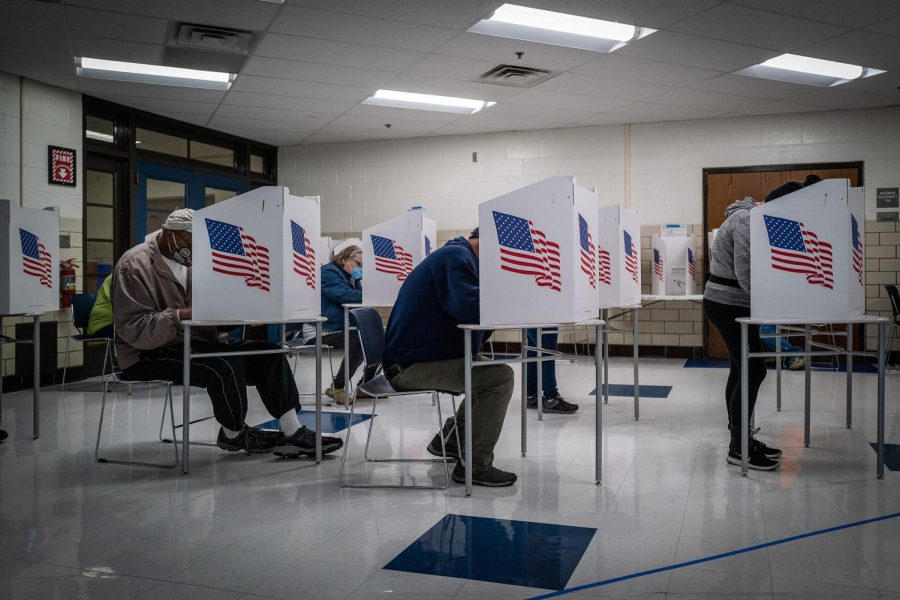My best friend recently texted me a picture of herself to get my stamp of approval before posting it on her Instagram, a tradition we’ve upheld since creating our accounts in fifth grade. As I looked over it, I noticed an incredibly old man wearing a confederate flag shirt and smoking a cigarette in the background. I responded, “Very cute. Want me to edit out the redneck behind you?”
She agreed, and I quickly got to work in Adobe Photoshop, as I have for many friends before. Within five minutes, the sun shined brighter to highlight her features more generously, and the man had disappeared. I sent the new and improved image back, and it was posted shortly thereafter. As I looked through her Instagram, after commenting “so pretty” as per girl code, I realized I had photoshopped or edited nearly every image she had posted. The original photos felt like an innocent secret that we kept between us. It was a haunting reminder that social media is not real.
This is in no way an Earth-shattering sentiment. Most social media users are keenly aware of it, particularly when it comes to celebrities or public figures. Although celebrities and ad companies are arguably the root of the problem, they are not the most damaging force in the world of unethical photoshopping.
When looking at a photo of the Kardashians, for example, the assumption is that their bodies and faces have been photoshopped or manipulated in some way. They are not real body standards — or even real people — to me. The dissociation of celebrities that have been notorious for photoshopping have made them akin to Barbie dolls. They are not even worth comparison because they are so obviously plastic.
The larger ethical dilemma is how real people, or public figures that are perceived as real people, post photoshopped pictures and the effect that has on societal standards.
Louisiana State University gymnast, Olivia “Livvy” Dunne, came under scrutiny earlier in August when she was caught posting photoshopped photos on her Instagram that made her look skinnier and less muscular compared to the original versions that LSU gymnastics posted. Dunne is one of the highest-valued female college athletes, and her social media has amassed 4.4 million followers. She quickly deleted the photos when fans realized the inconsistencies between photos, but she has yet to release a statement to address her action.
According to The Jerusalem Post, the popular photoshop app FaceTune has been downloaded more than 60 million times since its release in 2013. Social media use has been proven to negatively impact users’ body image, eating patterns and overall mental health, particularly in young women. Despite knowing that photoshop is prevalent, it is often unspotted, and thus its negative effects are widespread. This is because photos that have been photoshopped well are not recognized as distorted because of survivorship bias.
We only know Dunne and other public figures have been photoshopping because they have been caught. They have been caught because their following is so large that there is inherently a higher chance of someone noticing. Whereas when I photoshopped a man out of the background of my friend’s photo, we are the only ones who have the original photo, and her platform consists of less than 700 followers. Therefore, the risk and potential scrutiny is exceedingly lower.
Photoshopping is not always unethical, however. Hypothetically, if one of my friend’s followers noticed a man was edited out of the background of her photo; it would not negatively affect anyone. Whitening your teeth or increasing the exposure in the picture are also ethical adjustments as they do not morph structural elements of your body. Photoshopping becomes unethical when it is used to distort your natural body or features to perpetuate an unrealistic beauty standard. A good rule for personal users to abide by when editing photos is to question what kind of backlash they would receive if they were celebrities and were exposed for the edits.
When personal accounts photoshop their bodies, it is actually more damaging than when someone like Kim Kardashian does it because personal account photos are perceived as authentic and the bodies as natural. Non-celebrities photoshopping reinforces unhealthy, idealistic body standards and ultimately hurts themselves as it perpetrates a harmful expectation of women.















Geoff • Sep 11, 2023 at 10:09 pm
What do you mean whitening teeth is “ethical”? It totally is not. White teeth are unnatural, and whitening them encourages people to spend thousands of dollars on dental procedures to make them look like the white-toothed ideal.